| THIS WEEK |
|
People worldwide understand the importance of protecting the common good during a pandemic. In the United States, an additional concern is on our minds as the struggle against coronavirus intensifies: How do we fix the broken systems this public health emergency is exposing?
Our U.S. officialdom couldn't, of course, care less. Donald Trump declared a national state of emergency last week surrounded by a power-suited parade of CEOs. The president is pushing a new “disaster capitalism,” defaulting to xenophobia while pretending he has the crisis under control.
What should we be doing instead? Everything from direct relief like eviction moratoriums and cash assistance to paid leave for everyone and massive investments in our safety net and public health systems. We feature some of these ideas in this week’s issue, and we’ll have more in the weeks to come. In the meantime, please stay safe and healthy!
Chuck Collins, for the Institute for Policy Studies Inequality.org team
|
|
| |
|
| INEQUALITY BY THE NUMBERS |
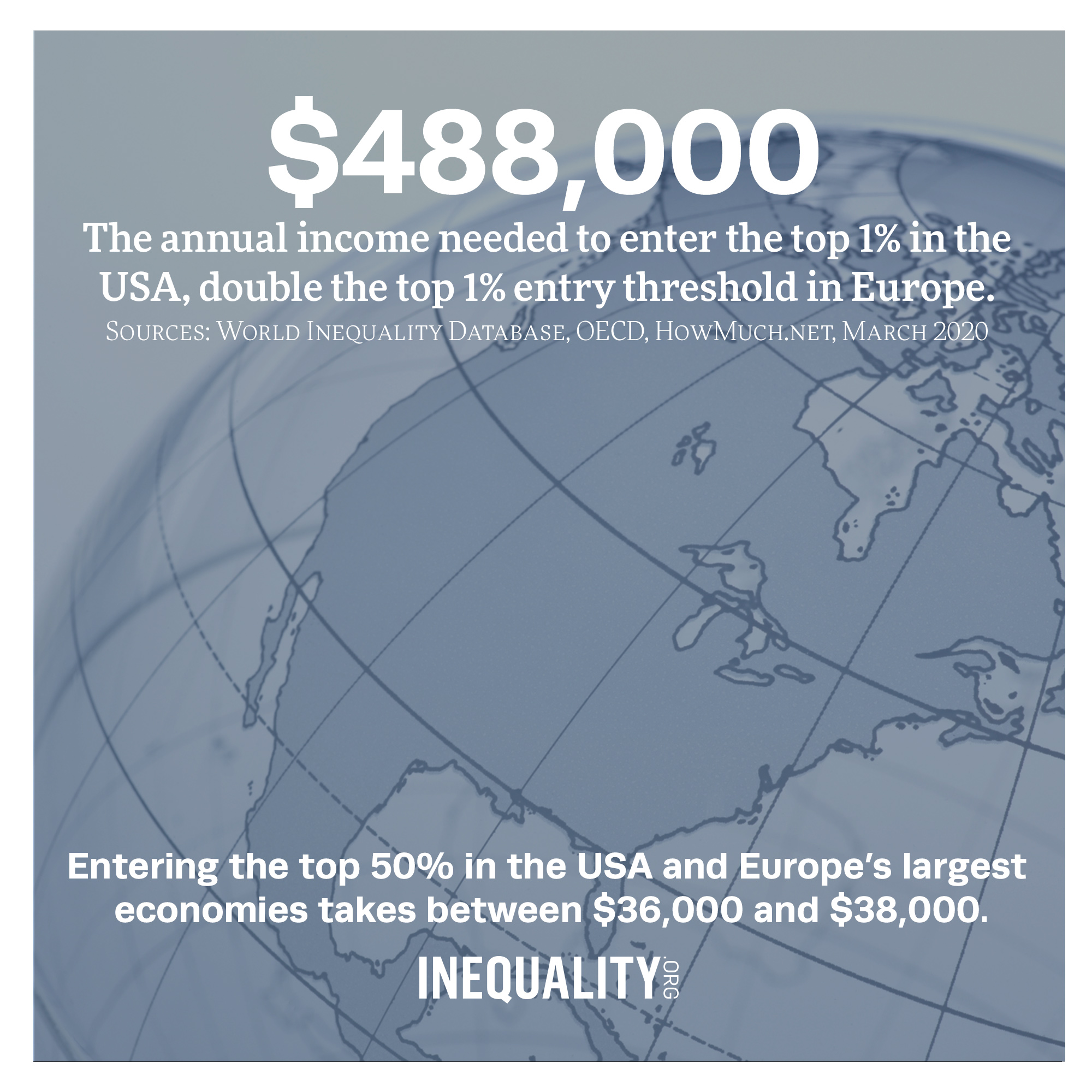 |
|
|
|
| |
|
| FACES ON THE FRONTLINES |
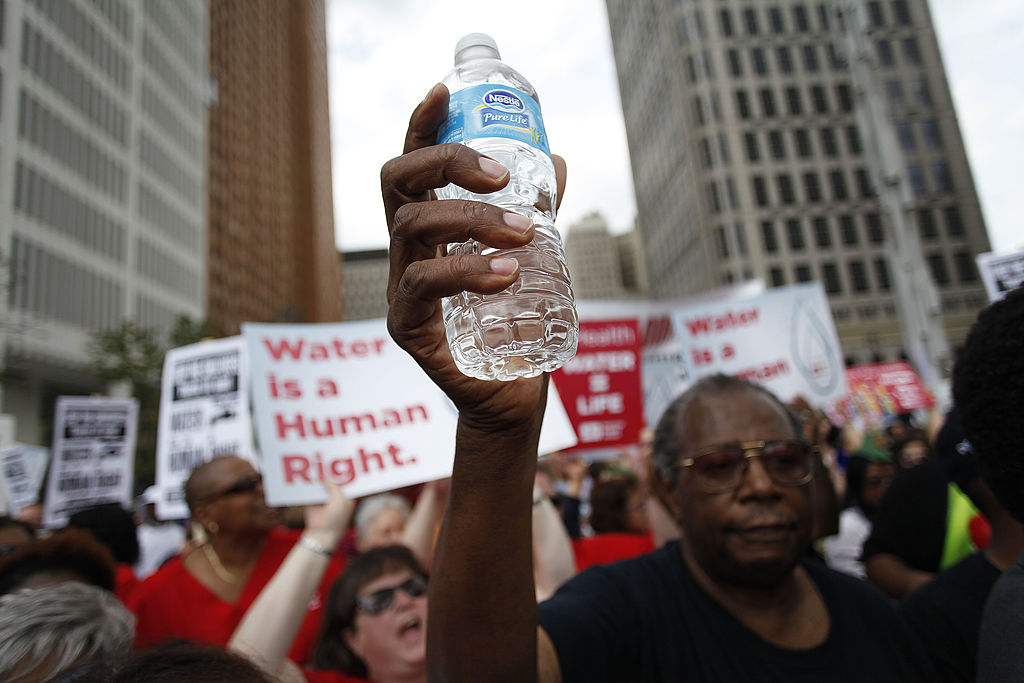 |
| The Organizers Who’ve Long Fought for Water |
| In 2014, the United Nations declared that Detroit was violating human rights by turning the water off for city residents who couldn’t pay their bills. Now, six years later, Detroiters may finally be getting the relief they deserve. Local organizers have been fighting the city’s aggressive shutoff program for years, but their demands became even more urgent in the face of coronavirus. Detroit announced last week that it would pause shutoffs and restore water to the thousands of city residents who have already been cut off. With localities across the United States grappling with privatized water during a public health emergency, we have more from Detroit. |
|
| |
|
| WORDS OF WISDOM |
 |
|
|
|
| |
|
PETULANT PLUTOCRAT
OF THE WEEK |
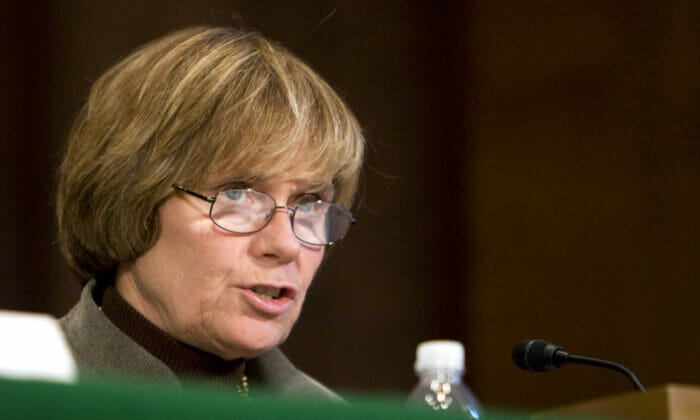 |
| A ‘Fall Gal’ for Bad Guys — and Mighty Proud of It! |
| Elizabeth Duke sees herself as a smasher of glass ceilings. The first woman to chair the American Bankers Association, Duke has spent the last two years as the only woman to lead a major U.S. bank as CEO or board chair. That all changed last week when Duke resigned her board chair post at Wells Fargo after a congressional report blasted the bank for remaining, as Rep. Maxine Waters puts it, “a lawless organization that has caused widespread harm to millions of consumers.” Wells Fargo, we learned four years ago, had been systematically opening false accounts in customer names, overcharging on mortgage fees, and forcing auto loan borrowers to buy unneeded insurance. The bank did agree to clean up its act, but proceeded to drag its feet on compliance. At one point, a churlish Duke even upbraided regulators for copying her on letters sent to Wells Fargo managers on the clean-up actions they needed to be taking. Duke told Congress last week she feels “confident Wells Fargo has the right team in place.” This glass-ceiling smasher may have just become an honorary lifetime member of banking’s old boys’ club. |
|
| |
|
| BOLD SOLUTIONS |
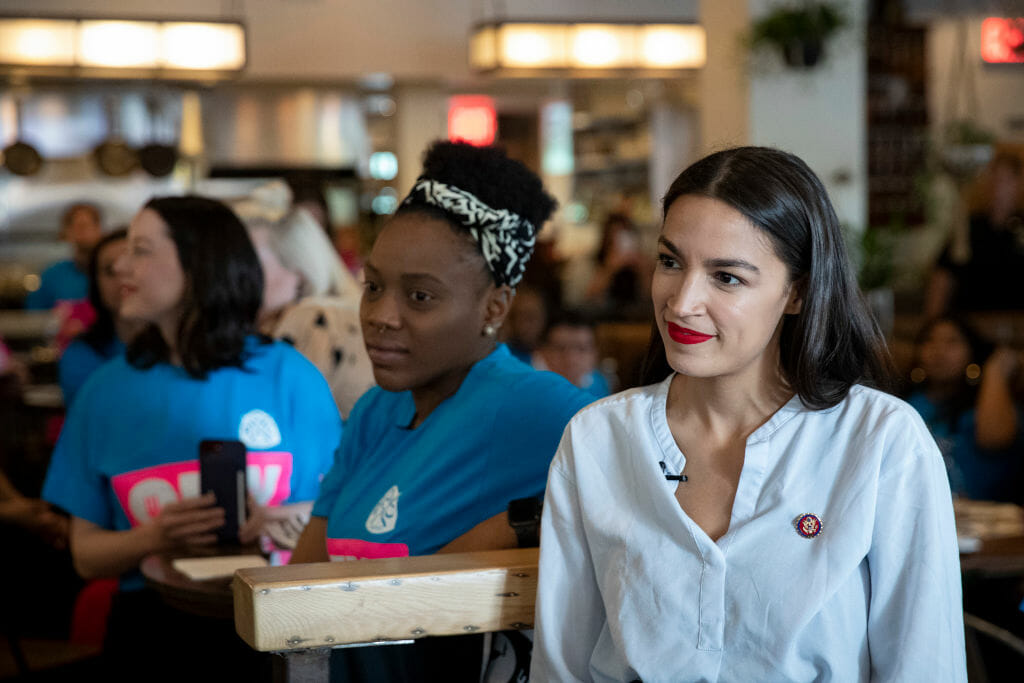 |
| Cash Payouts Can Ease the Coronavirus Burden |
| The fight is on to avoid repeating the 2008 crisis mistake of protecting the privileged while leaving the working class out in the cold. Among proposals for an equitable crisis response: temporary cash transfers or universal basic income. These programs would help provide a safety net for Americans who are suffering financially but wouldn’t benefit from other forms of aid. Extended unemployment insurance, for example, won’t help tipped workers and contractors who haven’t been laid off. Paid sick leave won’t help those who aren’t ill. Both Republican Senator Mitt Romney and progressive congresswoman Alexandria Ocasio-Cortez have promoted the universal basic income idea in recent days. Ugo Gentilini, Global Lead for Social Safety Nets at the World Bank, tweeted on Sunday that 20 other countries have adopted some form of cash transfer or basic income program as a coronavirus response. Hong Kong, for example, is giving every adult $1,200. Twenty nations, notes the World Bank’s Ugo Gentilini, have so far adopted some form of cash transfer or basic income program as a coronavirus response. Hong Kong is giving every adult $1,200. Notes Gentilini: “Hopefully, cross-country learning on cash transfers will spread faster than the virus.” |
|
| |
|
| GREED AT A GLANCE |
 |
|
|
|
| |
|
| TOO MUCH |
 |
| Must Coronavirus Crisis End with a Richer Rich? |
| In every society, some self-absorbed people will always think only of themselves. But these self-absorbed few, in relatively equal societies, pose no great problem. They just don’t have the means to mess things up. In more unequal societies, a different story. In top-heavy societies, nations where wealth and power have concentrated, a few people do have the means to undercut the common good. These wealthy few can exploit the vulnerabilities of societies in crisis to make themselves even wealthier. Can we keep this dynamic from repeating with the coronavirus? We certainly can — if we leverage the power of the public purse. Inequality.org co-editors Sarah Anderson and Sam Pizzigati have more. |
|
|
|
| |
|
| MUST READS |
|
This week on Inequality.org
Max Lawson, Billionaire Wealth Just Shrunk, But Coronavirus Is No Great Leveler. While the world's richest have seen a dip in their stock holdings, those on the bottom of the wealth scale will bear the heaviest burden of the crisis.
Liz Watson, Coronavirus Prevention That Works For Working People. It should not take a terrifying national emergency for us to wake up to the realization that we all pay the price when we treat people like they don’t matter.
Lee Price, Supreme Court Poised to Strike a Major Blow to Social and Environmental Protections. Without the power to regulate health, finance, and other critical areas, we’ll be living in a much sicker, more unequal, and more economically unstable world.
Elsewhere on the Web
Karin Pettersson, The corona crisis will define our era. The pandemic has highlighted the frailties of a short-sighted and hyper-individualistic social system.
Max Fisher and Emma Bubola, As Coronavirus Deepens Inequality, Inequality Worsens Its Spread. Coronavirus is widening social and economic divisions that also make the virus deadlier, a self-reinforcing cycle that experts warn could have consequences for years to come.
Christopher Ingraham, Young Americans say billionaires do more harm than good, study shows, Washington Post. Roughly two-thirds of Americans now say being rich owes more to having advantages in life than working hard.
Joseph Heffner and Oriel FeldmanHall, The Psychology Behind Inequality, Psychology Today. Life amid inequality can perpetuate unequal systems.
Rana Foroohar, US economy is dangerously dependent on Wall Street whims, Financial Times. America’s economy has become dependent on asset bubbles for survival, a reality that obscures stagnating wages for the bottom 80 percent.
Amy Hanauer, Taxes in a Time of Coronavirus, JustTaxes. On tax cuts for the rich and their deeply negative impact on our shared capacity to confront social problems.
Ben Steverman, Heirs of the ultra-wealthy can profit even as markets plunge due to coronavirus fears, Independent. Severe stock market declines make a popular loophole to the estate tax even more lucrative for the super rich.
Aaron Mendelson, Deceit, Disrepair and Death Inside a Southern California Rental Empire, LAist. A real estate mogul lives 12,000-sq.-ft.-mansion large in “America's most expensive ZIP code” while his low-income tenants battle "roaches, rats, bedbugs, bees, maggots, and mold.”
Guy Saperstein, If Jeff Bezos really wants to fight the climate crisis, he should just pay his taxes, Guardian. Our public emergency services shouldn’t have to beg for the funding that they need to operate.
Anna Altman, The Millennials Who Want to Get Rid of Their Class Privilege, Washington Post. Their families built fortunes. Now these young people are learning how to give their money away.
|
|
| |
|
| A FINAL FIGURE |
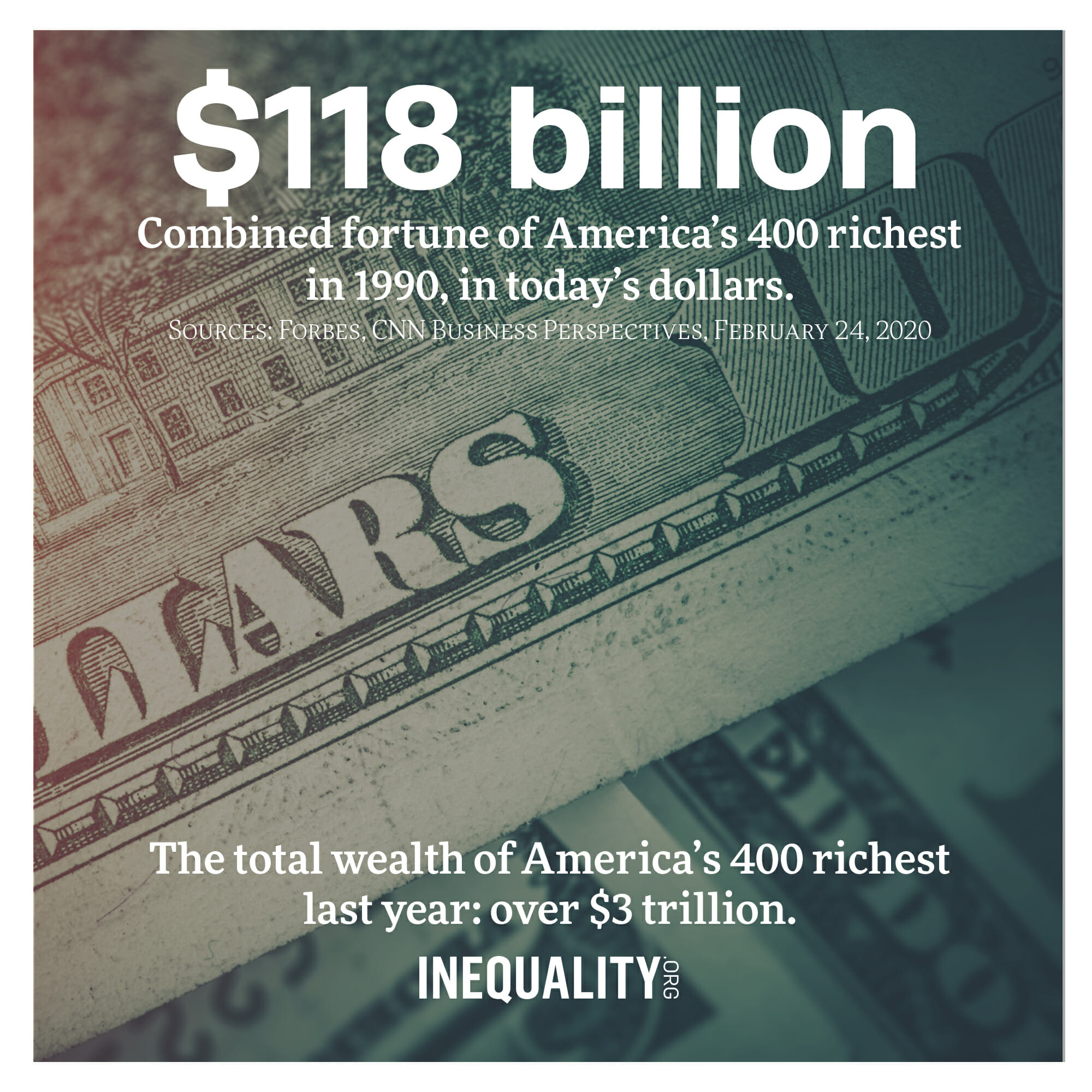 |
|
|
|
| |
|
|